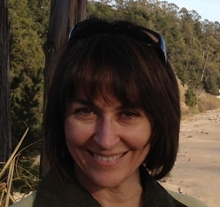Veteran New York Times op ed writer Bob Herbert has a new book out about "America" -- by which he means the United States, as opposed to South America, Central America, or North America -- and how it is losing its way. Among other things, Herbert takes a contrary position toward charter school experimentation and technology engineering in education. His basic point is that "the rich" are damaging U.S. public education by getting educators to try experiments with alternative delivery models in education because these experiments often fail to show better results than business-as-usual. His alma mater, Empire State College (NY) is, interestingly enough, in the vanguard of such experimentation. Perhaps that is what irks him. Not sure. The problems with his argument are, first, he fails to acknowledge the positive findings of the successful experiments, second, he fails to acknowledge the very real constraints of mass education business-as-usual, such as the limitations of time and attention that any single teacher can have for any single learner, and third, he does not provide any insight to advance understanding of how to address these real problems. He appears to be well-meaning in a fiery sort of way, but has applied the us-them, rich-vs.-poor schema in a way that is about as helpful to those working in the trenches as wringing one's hands might be to a scientist trying to find the cure to cancer.
More helpful is the perspective of those actually engaged in these experiments. Here is the view of Terry Norris from the College of Southern Nevada, a college technology administrator who notes that online technology can work but that it needs systems to enhance personal connections between learners and teachers and ways to flag when students are falling behind. I also highly recommend the book by education reporter Amanda Ripley, The Smartest Kids in the World, a very thoughtfully constructed exploration of the education systems of a few of the countries that outscore the U.S. on the PISA critical thinking test. Refreshingly, it is told from the perspective of everyday American exchange students studying in three of these other countries--Finland, South Korea, and Poland. These are fresh voices precisely because instead of framing every critique of education as part of tiresome culture wars narrative, they recognize that the U.S. has real problems with its educational system that need to be solved.
Subscribe to:
Post Comments (Atom)




No comments:
Post a Comment